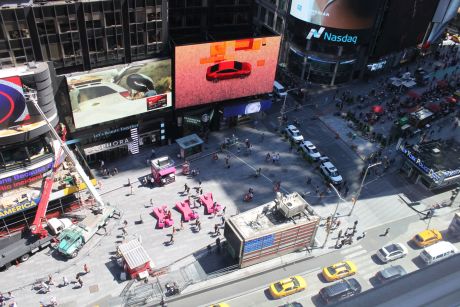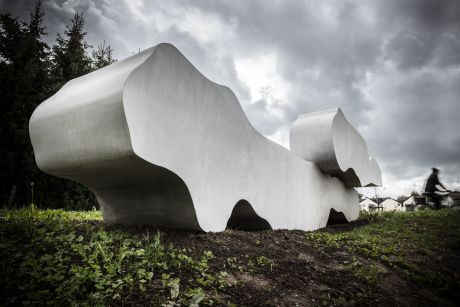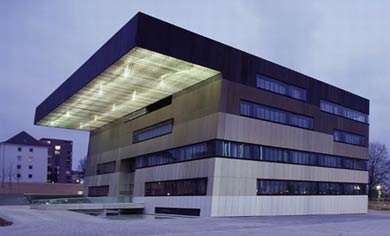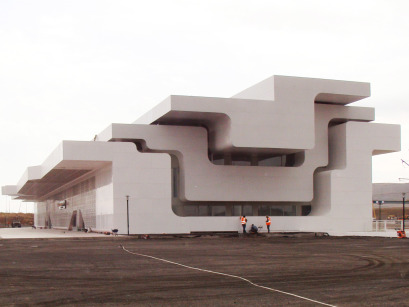J. MAYER H. und Partner
Villa n.n.
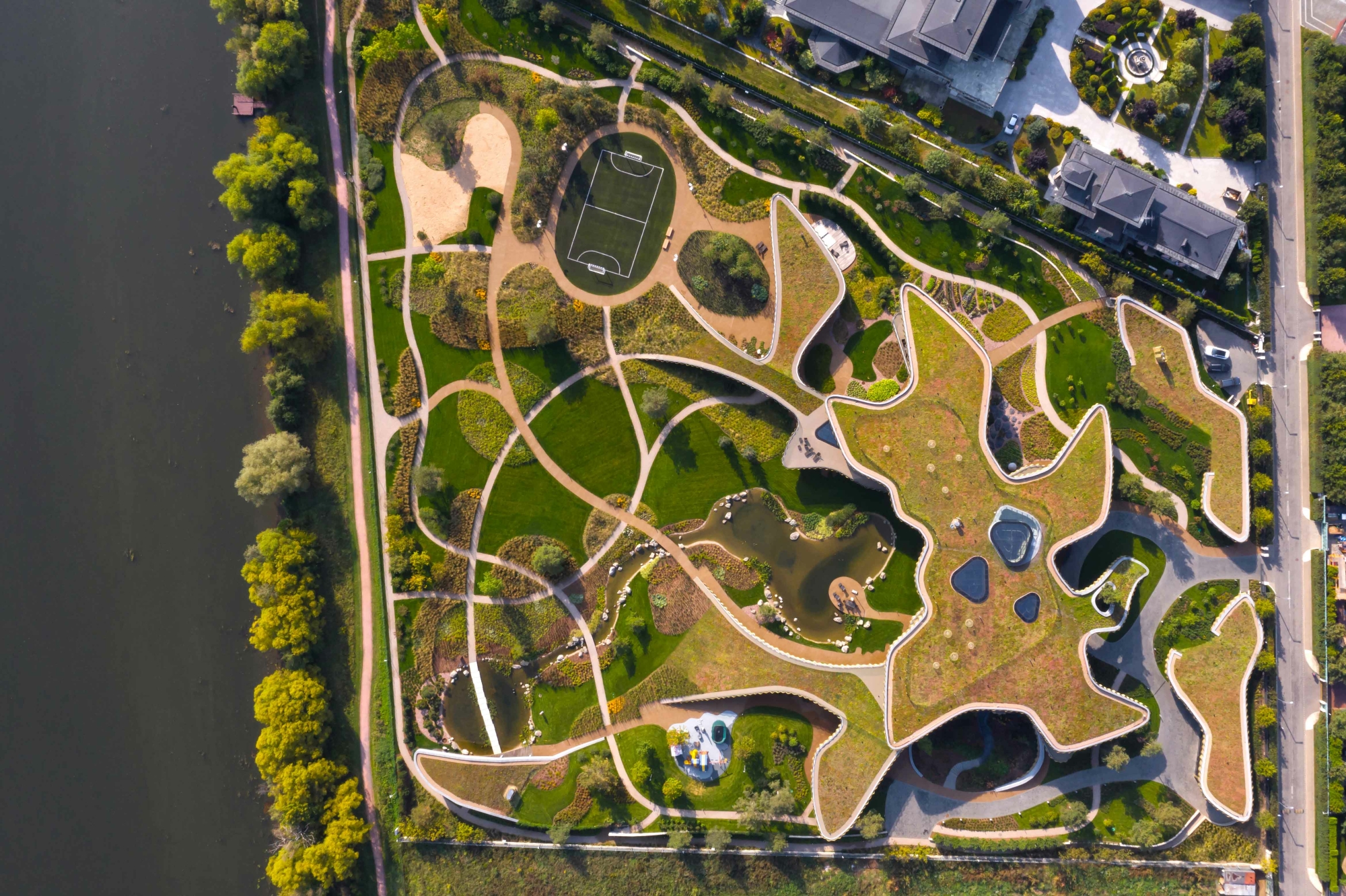
© J. MAYER H. und Partner
n.n. represents a spatial exploration between concealment and exposure. This layered
topography blurs the line separating landscape and construction. It is the private residence
of a family in a rural area along the River Moskva. The geometry of the floor plan
fuses the building with the ground it is located on by removing individual layers and creates
spaces between the strata. A cross-section shows a rich variance between the
floors, and the internal links and gradual transitions toward the outside develop open
layers for a flexible and programmatic organization of space. The ambivalence of privacy
and openness is modulated in various states between gentle hills and closed air
spaces. By way of the building’s cantilevered and curved stories, a very wide range of
transitions is formed between inside and outside, featuring constructed nature like
climbing walls and pools, designed gardens and landscaped areas, as well as untouched
nature.
The distance from the river is observed and protected by the natural water reservoir.
The greened roofs and dense floors create a better interior climate by way of surface
evaporation and heat buffer capacities for heating and cooling. The glazed façade
around the entire building brings a great deal of daylight into the building and interlinks
the interior with the garden. The entire topography of the plot is arranged as a half-pipe,
so that it rises at the edges of the plot hiding the view of the neighbors. The family’s private
rooms are located deep inside the building and remain undisclosed. The bedrooms
on the upper floors have direct access to the garden via the ramp-like green roofs. The
undulating edges of the building create a soft transition between architecture and nature.
n.n.´s topography of privacy melts into the patterns of the rural landscape. Its edges are
fuzzy, blurry, undulated fringes peeling off from the ground. It is camouflage from the air
and an extravagant neighbor on the ground.
topography blurs the line separating landscape and construction. It is the private residence
of a family in a rural area along the River Moskva. The geometry of the floor plan
fuses the building with the ground it is located on by removing individual layers and creates
spaces between the strata. A cross-section shows a rich variance between the
floors, and the internal links and gradual transitions toward the outside develop open
layers for a flexible and programmatic organization of space. The ambivalence of privacy
and openness is modulated in various states between gentle hills and closed air
spaces. By way of the building’s cantilevered and curved stories, a very wide range of
transitions is formed between inside and outside, featuring constructed nature like
climbing walls and pools, designed gardens and landscaped areas, as well as untouched
nature.
The distance from the river is observed and protected by the natural water reservoir.
The greened roofs and dense floors create a better interior climate by way of surface
evaporation and heat buffer capacities for heating and cooling. The glazed façade
around the entire building brings a great deal of daylight into the building and interlinks
the interior with the garden. The entire topography of the plot is arranged as a half-pipe,
so that it rises at the edges of the plot hiding the view of the neighbors. The family’s private
rooms are located deep inside the building and remain undisclosed. The bedrooms
on the upper floors have direct access to the garden via the ramp-like green roofs. The
undulating edges of the building create a soft transition between architecture and nature.
n.n.´s topography of privacy melts into the patterns of the rural landscape. Its edges are
fuzzy, blurry, undulated fringes peeling off from the ground. It is camouflage from the air
and an extravagant neighbor on the ground.












